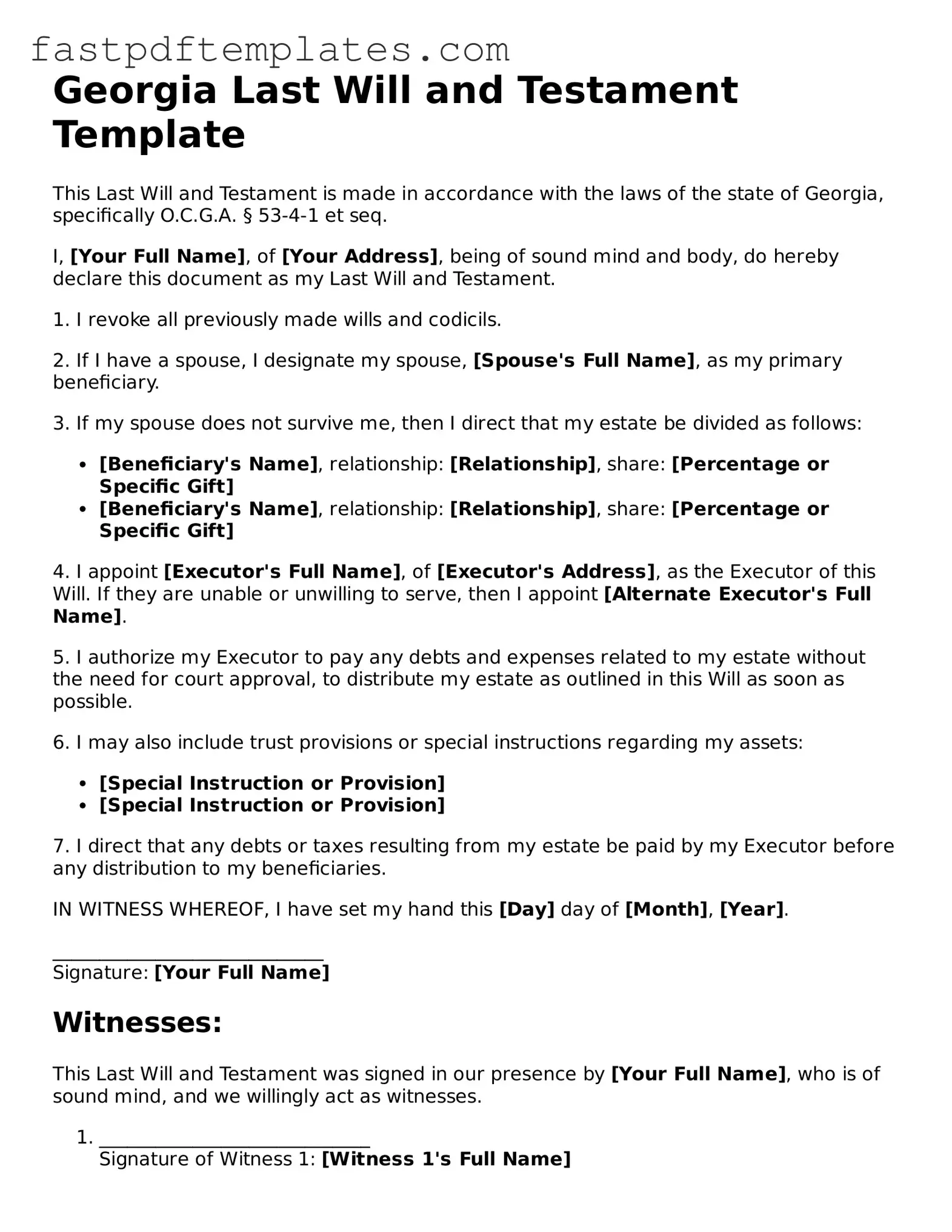Attorney-Approved Georgia Last Will and Testament Document
A Georgia Last Will and Testament form is a legal document that outlines an individual's wishes regarding the distribution of their assets after their passing. This form ensures that a person's desires are respected and followed, providing clarity and direction for loved ones. Properly executing this document can help prevent disputes and ensure a smooth transition of one's estate.
Access Document

Attorney-Approved Georgia Last Will and Testament Document
Access Document
Your form still needs completion
Complete your Last Will and Testament online and download the final PDF.
Access Document
or
Click for PDF Form
